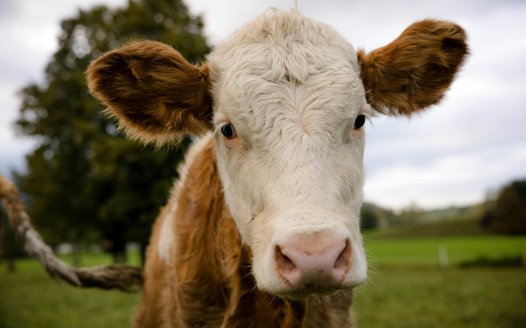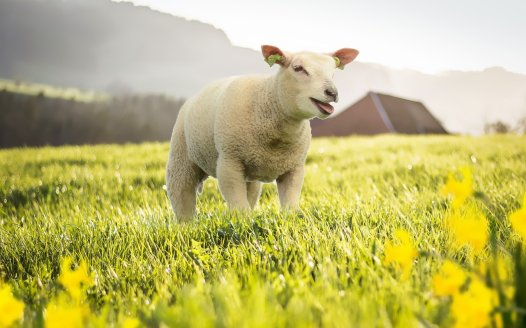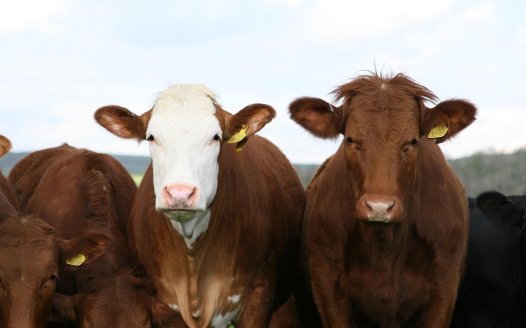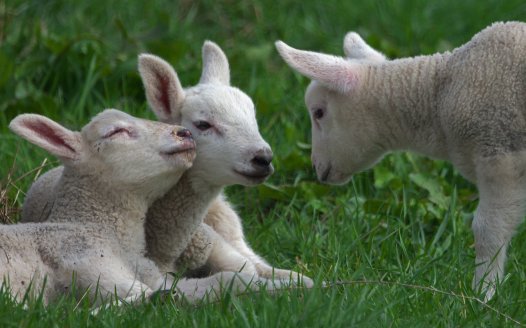Leading vet calls for an end to religious slaughter
Posted: Thu, 6th Mar 2014
A leading vet has said the religious slaughter of animals should be banned, unless Muslims and Jews can voluntarily adopt more humane methods of killing.
John Blackwell, president-elect of the British Veterinary Association (BVA), told The Times that the traditional practice of slitting animals' throats and allowing them to bleed to death for halal and kosher meat caused unnecessary suffering.
Mr Blackwell said: "As veterinary surgeons, it is one of the most important issues on our radar. This is something that can be changed in an instant." He said that he respected religious beliefs but "the Danish unilateral banning [was done] purely for animal welfare reasons, which is right".
National and European animal welfare legislation requires all animals to be stunned before slaughter in order to minimise suffering. The only exemption is for religious communities to meet Jewish and Muslim religious requirements.
British Muslim political and social commentator, Mo Ansar, took to Twitter to argue that, rather than being concerned with animal welfare, advocates of humane slaughter were motivated by "anti-theism and anti-Muslim prejudice." He said, "the attack on ritual slaughter is yet another being fuelled by prejudice and ignorance."
His views echoed an editorial in The Times, which said it was "too soon" to insist that animal welfare should trump religious freedom.
According to The Times:
"…it is an ugly fact of history that 19th-century efforts to outlaw shechita in Europe were often fuelled by anti-Semitism, and it is an ugly fact of 21st-century life that the far Right seeks to hijack the campaign against halal butchery for its own ends. When the British National Party pickets a Muslim slaughterhouse, few believe it does so out of concern for the chickens. Legitimate animal welfare activists must have a clear strategy to prevent their cause becoming a proxy for bigotry."
However, The Times editorial also said defenders of religious slaughter should "be ready to give ground as our collective wisdom grows."
"They are defending a cultural practice rooted at least partly in concern for animal welfare. If it can finally be proved that stunning before slaughter reduces suffering, the case for insisting on it will be hard to resist. Eating meat inevitably involves the cruelty of killing animals. People of all faiths, and none, should be able to agree that no doctrine should be an immovable obstacle to minimising that cruelty."
A majority of British Muslims accept electrical pre-stunning and Food Standards Agency figures from 2012 show that more than 80% of animals are stunned before slaughter for Halal meat in the UK. The practice is not accepted under strict Jewish traditions and animals slaughtered for Kosher meat are never stunned before slaughter.
The slaughter of animals without pre-stunning is permitted in the UK despite a recommendation by the Government's own advisory body, the Farm Animal Welfare Council (FAWC), that the practice should be banned.
In addition to the BVA, the exemption that permits slaughter without pre-stunning is opposed by the RSPCA, Compassion in World Farming and the Federation of Veterinarians of Europe, amongst others.
The European Union's Scientific Panel on Animal Health and Welfare (AHAW) have said: "Due to the serious animal welfare concerns associated with slaughter without stunning, pre-cut stunning should always be performed."
Stephen Evans, campaigns manager at the National Secular Society, commented. "The scientific consensus appears clear that it is more humane to stun an animal prior to slaughter than not to do so. It is therefore both reasonable and appropriate to suggest that, unless religious communities can agree on more humane slaughter methods, their right to religious freedom should, in this instance, be limited in the interests of animal welfare.
"The unreasonable position in this debate that animal welfare should be compromised by the accommodation of rigid and fixed religious doctrines in UK law."







